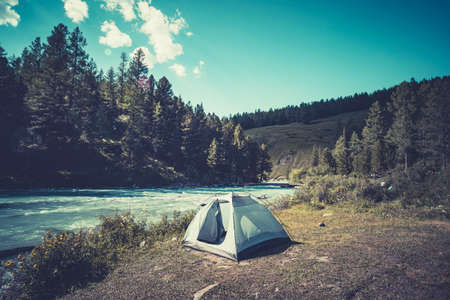Introduction to the Right to Roam
The Right to Roam is a cherished concept in the United Kingdom, reflecting both the country’s deep-rooted respect for nature and its long history of public access to land. For many locals and visitors alike, the ability to wander freely through open countryside, woodlands, and moorlands forms an essential part of the British outdoor experience. But where did this idea originate, and why does it hold such cultural significance? Tracing back to historical struggles for access—such as the famous Kinder Scout Mass Trespass of 1932—the Right to Roam has evolved into a symbol of freedom and community connection with the natural landscape. Today, it not only shapes how people explore the great outdoors but also fosters a sense of shared responsibility and respect for these wild spaces. Whether you are planning your first wild camping trip or simply curious about Britain’s walking traditions, understanding the origins and meaning behind the Right to Roam offers valuable insight into what makes exploring the UK so special.
2. Legal Framework and UK Country Differences
When we start dreaming about wild camping with our families, it’s important to understand the different laws that shape our adventures across the UK. The right to roam isn’t the same everywhere—each country within the UK has its own rules about where you can pitch a tent for the night. Understanding these differences helps us respect nature, landowners, and local communities, giving everyone peace of mind during their outdoor escapes.
Understanding Access Rights Across the UK
The legal framework for wild camping is rooted in each countrys history and attitudes towards land access. England, Scotland, Wales, and Northern Ireland each have their own approach. Here’s a handy table to highlight the main distinctions:
| Country | Legal Status of Wild Camping | Main Legislation / Guidance | Key Points |
|---|---|---|---|
| England | Generally not permitted without landowners permission (except Dartmoor National Park) | Countryside and Rights of Way Act 2000 | Permission required almost everywhere; Dartmoor allows limited wild camping with restrictions |
| Scotland | Permitted (with some exceptions) | Land Reform (Scotland) Act 2003 & Scottish Outdoor Access Code | Right to roam widely respected; responsible access encouraged but restricted in some areas (e.g., Loch Lomond) |
| Wales | Generally not permitted without landowners permission | Countryside and Rights of Way Act 2000 (applies as in England) | No legal right to wild camp; some landowners may allow it if asked politely |
| Northern Ireland | Strictly not permitted without landowners permission | No general right to roam legislation | Private land dominates; always seek express permission before camping |
The Importance of Responsible Roaming
No matter where your family adventure takes you, being mindful of local laws helps protect wildlife habitats, preserves the peace of rural life, and ensures that everyone—campers and landowners alike—can feel secure. If you’re ever unsure, reach out to local authorities or park rangers for guidance. This way, every wild camping experience remains magical, memorable, and respectful.

3. Access Rights: Where You Can and Cannot Camp
When it comes to wild camping in the UK, knowing exactly where you can pitch your tent is essential for a fun and worry-free adventure with your family. The countryside is full of beautiful spots, but not every field or forest is open for everyone to use. Access rights vary greatly depending on where you are, and understanding these differences helps us all respect nature and local communities.
England and Wales: More Restrictions
In England and Wales, the law says that most land is privately owned, which means you cant just camp anywhere you fancy. National Parks like the Lake District or Dartmoor might look inviting, but wild camping here is generally not allowed unless youve got permission from the landowner. Dartmoor was famous for allowing wild camping until 2023, but now even here youll need to check for up-to-date permissions. Some areas may have designated spots where wild camping is tolerated—always look out for signs or check online before you go exploring with the kids.
Scotland: More Freedom with Responsibilities
Scotland is different! Thanks to the Land Reform (Scotland) Act 2003, everyone has the right to roam responsibly across most unenclosed land, including for wild camping. This means families can enjoy an overnight stay in places like the Highlands or along lochs, as long as you follow the Scottish Outdoor Access Code—leaving no trace and being considerate to others. However, some popular spots (like parts of Loch Lomond) have seasonal byelaws restricting camping during busy months, so planning ahead is still important.
The Role of Land Ownership and Permissions
No matter where you are in the UK, remember that land ownership plays a big role. If youre unsure whether youre allowed to camp somewhere, it’s always best to ask the landowner directly—most will appreciate your courtesy. Some farmers and estate owners are happy to share their fields if you promise to respect their property and keep things tidy. You might even get a local tip about a perfect spot for your family tent!
Top Tips for Happy Camping
To make sure everyone has a safe and happy experience, do a little homework before setting off. Check official park websites or local council advice for up-to-date information on access rights and restrictions. And remember, teaching children about respecting boundaries—both physical and social—is part of making wonderful countryside memories together.
Respecting Nature and Local Communities
When exploring the beautiful landscapes of the UK through wild camping, it is vital to respect both nature and the people who call these places home. Following the Countryside Code is not just a recommendation—it’s a responsibility for everyone enjoying the outdoors. The Code helps protect wildlife, maintain the beauty of the countryside, and ensure harmonious relationships with local communities.
The Countryside Code: Key Principles
| Principle | Description |
|---|---|
| Respect Everyone | Be considerate of other people and respect those who live and work in the countryside. |
| Protect the Environment | Leave no trace, take litter home, avoid damaging plants or habitats, and keep fires under control. |
| Enjoy Responsibly | Plan ahead, follow marked paths, and adhere to any local guidance or restrictions. |
Protecting Wildlife While Camping
Wild camping offers unique opportunities to connect with nature, but it also comes with the duty to protect local wildlife. This means keeping noise to a minimum, avoiding disturbing animals—especially during breeding seasons—and never feeding wild creatures. Setting up camp away from sensitive habitats like nesting sites or wetlands helps preserve these precious environments for future generations.
Building Positive Relationships with Locals
Local communities are often welcoming to respectful campers, but tensions can arise if rules are ignored. Always seek permission if you’re unsure whether you can camp on certain land, greet locals warmly, and support village shops or pubs where possible. A friendly attitude and responsible behaviour go a long way in maintaining good relations between visitors and residents.
Simple Ways to Show Respect:
- Keep noise levels down, especially at night.
- Avoid blocking access roads or gateways with vehicles or tents.
- Follow any specific instructions from landowners or signage.
- Dispose of waste properly—use public bins or take rubbish home.
Remember: Responsible wild camping ensures that everyone—campers, locals, and wildlife—can enjoy the countryside together for years to come.
5. Essential Tips for Safe and Legal Wild Camping
Embarking on a wild camping adventure in the UK is an exciting way for families and adventure seekers to connect with nature, but it’s important to plan thoughtfully to ensure both safety and respect for the law. Here are some practical guidelines to make your wild camping experience memorable, safe, and responsible.
Know Your Rights and Restrictions
Before setting out, research the specific access rights in the area you wish to explore. In Scotland, thanks to the Land Reform (Scotland) Act 2003, you can camp responsibly on most unenclosed land. However, in England, Wales, and Northern Ireland, wild camping is generally not permitted without the landowner’s permission. Always double-check local regulations and avoid areas where camping is clearly prohibited.
Choose Your Spot Wisely
Opt for discreet sites well away from roads, homes, and cultivated fields. Arriving late in the day and leaving early minimises disturbance. Avoid locations near water sources used by locals or livestock, as well as sensitive habitats like sand dunes or flower-rich meadows.
Be Prepared for British Weather
The UK’s weather can be unpredictable. Bring appropriate gear including waterproof clothing, sturdy footwear, and extra layers to keep everyone comfortable. Teach children about layering and why staying dry matters—making it a fun learning moment!
Leave No Trace
Wild camping comes with the responsibility to minimise your impact. Pack out all rubbish (even small bits), use a portable stove instead of lighting fires, and avoid damaging vegetation. Leave your pitch as you found it—or better—so that future adventurers can enjoy its beauty too.
Stay Safe Together
Let someone know your plans before you go, especially if you’re heading off-grid. Carry a map and compass (and know how to use them), as mobile signal isn’t always guaranteed in remote areas. Keep an eye on young explorers at all times and discuss safe boundaries as a family.
Respect Others—People and Wildlife
Keep noise to a minimum, especially after dusk when wildlife is most active and locals may be nearby. Watch wildlife from a distance and never feed animals. Teach children about respecting nature—this can become a treasured family tradition.
A Family Adventure to Remember
With thoughtful planning and respect for local rules, wild camping in the UK can be a magical experience for families big and small. By prioritising safety, legality, and care for the countryside, you’ll help ensure these special places remain open for future generations of curious campers.
6. Real-Life Experiences: Stories from UK Campers
There’s something magical about sharing a wild camping adventure with loved ones, and hearing stories from fellow campers can ease any worries you might have. Families across the UK have embraced wild camping with open arms, finding both comfort and excitement in nature’s embrace. The Johnson family from Devon recalls their weekend escape to Dartmoor, where wild camping is legally permitted in certain areas. They remember falling asleep under the stars, listening to the gentle hoot of an owl, and waking up together for a sunrise breakfast of hot chocolate and crumpets. “We felt safe, free, and closer as a family,” says Mrs Johnson. “Our children learnt to respect nature and enjoyed every moment.”
Solo adventurers often find reassurance in the kindness of locals and the welcoming spirit that thrives across British countryside. Tom, an avid hiker from Yorkshire, shares how he always checks land access rules before pitching his tent. On one occasion, he was kindly greeted by a farmer who pointed him towards a perfect spot by a bubbling brook. “The key is respect—leave no trace, follow guidelines, and most people are happy to share their beautiful land,” Tom advises.
Groups of friends also cherish these getaways. Three university mates reminisced about their summer trek along Scotland’s West Highland Way, where wild camping is generally allowed. They recall singing songs round a tiny campfire (within local regulations), swapping stories beneath endless skies, and being awed by the freedom the Scottish Outdoor Access Code provides. For many families and individuals alike, wild camping offers not just adventure but peace of mind—when done thoughtfully and legally.
So whether you’re planning your first wild camp or looking for reassurance before your next trip, take heart from these real-life experiences. By respecting both access rights and local restrictions, you can create safe, memorable moments in some of the UK’s most beautiful places—just like so many others have done before you.
7. Useful Resources and Further Reading
If you’re feeling inspired to explore the British countryside, it’s always wise to be well-prepared. To help you navigate the rights, responsibilities, and joys of wild camping in the UK, we’ve gathered a list of trustworthy resources and recommended reading. These will support both beginners and experienced adventurers as they plan their journeys.
Key Organisations
- The Ramblers – The leading charity for walkers in Britain. Their website offers detailed advice on access rights and responsible enjoyment of footpaths and open spaces.
- Scottish Outdoor Access Code – An essential resource for understanding how Scotland’s laws differ from the rest of the UK. This guide explains your rights and responsibilities when accessing Scottish land.
- Countryside Code – Published by Natural England, this code sets out guidelines for enjoying the outdoors safely and respectfully across England and Wales.
- National Parks UK – Explore specific rules, recommended spots, and local guidance for wild camping within each national park.
Helpful Links
- UK Government: Right to Roam Guidance
- Mountaineering Scotland: Wild Camping Advice
- The Ramblers: Access Rights Explained
Recommended Literature
- “The Wild Guide to Britain” by Daniel Start – A beautifully illustrated guidebook featuring hidden wild places and practical tips for adventure seekers.
- “Microadventures: Local Discoveries for Great Escapes” by Alastair Humphreys – Perfect for families seeking inspiration close to home, with a focus on safe and responsible exploration.
Planning Your Adventure Together
Whether you’re setting out as a family or solo explorer, these resources will help you plan responsibly, ensuring you leave no trace while making treasured memories. Remember, the right to roam is a privilege that comes with caring for nature so future generations can enjoy it too. Happy camping!


